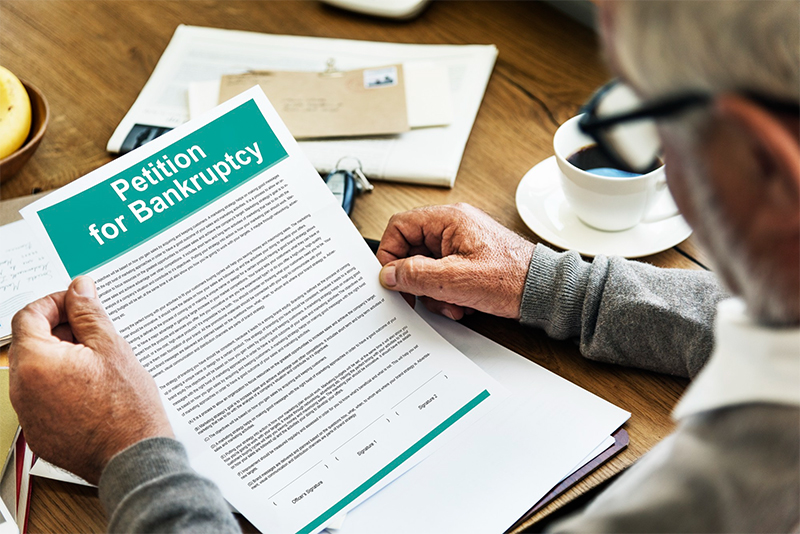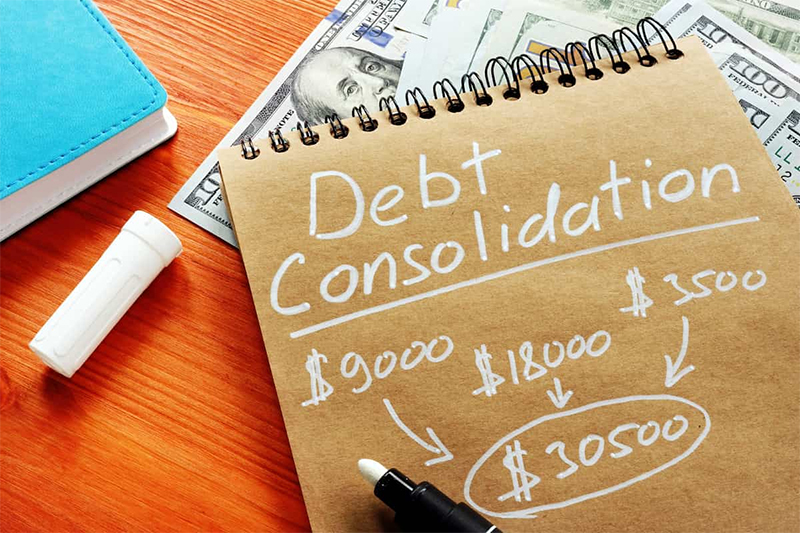Are you seeking solutions for your financial obligations?
What is Bankruptcy?
Bankruptcy is a legal process designed to help individuals or businesses who are unable to repay their debts. It provides a fresh start by eliminating or restructuring debts. In simple terms, bankruptcy is a way to confront overwhelming debt and gain financial relief.
There are different types of bankruptcy, each with its own set of rules and requirements. The most common types of bankruptcy are Chapter 7 and Chapter 13.
Chapter 7 bankruptcy, also known as liquidation bankruptcy, involves selling off nonexempt assets to repay creditors. Any remaining debt is usually discharged, meaning it is completely wiped out.
Chapter 13 bankruptcy enables individuals to create a repayment plan to settle their debts over three to five years. This allows the filer to keep their assets, such as a home or car, while gradually repaying creditors based on disposable income.
Bankruptcy is not a decision to take lightly. It has serious consequences and should only be used as a last resort. Filing for bankruptcy can harm credit scores and make it difficult to obtain credit in the future. Bankruptcy stays on a person’s credit report for several years, affecting their ability to secure loans or favorable interest rates.
There are situations when bankruptcy is the best option. Medical bills, credit card debt, or other overwhelming debts can be addressed through bankruptcy, providing individuals with a chance to start over and rebuild their financial lives.
American household debt hit a record $16.9 trillion at the end of 2022, up $2.75 trillion since 2019, according to the Federal Reserve. [1]

What Does Debt Consolidation Mean?
Debt consolidation is a financial strategy that allows individuals to combine multiple debts into a single payment. This can be a helpful option for those who are struggling to manage their finances and find it overwhelming to keep track of multiple monthly payments.
The process of debt consolidation typically involves taking out a new loan, often referred to as a debt consolidation loan, to pay off existing debts. This new loan usually has more favorable terms, such as a lower interest rate or longer repayment period, which can make it easier for individuals to manage their debt.
One common form of debt consolidation is through a debt management plan (DMP). In a DMP, individuals work with a credit counseling agency to negotiate lower interest rates and monthly payments with their creditors. The agency then combines all the debts into a single payment, which is distributed to the creditors each month.
Another option for debt consolidation is a personal loan. This type of loan is taken out from a bank or lending institution and is used to pay off all outstanding debts. The advantage of a personal loan is that it can often be obtained at a lower interest rate than the individual’s current debts, potentially saving them money in the long run.
Debt consolidation can be particularly beneficial for those with high-interest credit card debt. By consolidating these debts into a single loan with a lower interest rate, individuals can save money on interest payments and pay off their debt more efficiently.
Debt consolidation does not eliminate or reduce the amount of debt owed. Rather, it simplifies the repayment process by combining debts into one payment. It also provides individuals with a structured plan to gradually eliminate their debt over time.

Is Bankruptcy or Debt Consolidation The Best Choice?
Debt consolidation does not reduce or eliminate the total amount of debt owed. It simply combines debts into a more manageable form. It also requires individuals to have a reliable income source and good credit standing to qualify for a debt consolidation loan.
Bankruptcy serves as a more drastic solution for those overwhelmed by debt and unable to recover through other means. It provides individuals with a legal process to eliminate or repay debts under the protection of the court. Bankruptcy can offer individuals a fresh start, but it comes with significant long-term consequences.
One advantage of bankruptcy is that it offers immediate relief from creditor harassment and collection efforts. Filing for bankruptcy triggers an automatic stay, which prohibits creditors from taking any further action to collect on debts. This gives individuals some breathing room to regroup and reorganize their finances.
Choosing between bankruptcy and debt consolidation requires a thorough evaluation of individual circumstances. Factors such as the amount of debt, the ability to make monthly payments, credit score, and long-term financial goals should all be taken into account. Seeking guidance from a qualified professional, such as a credit counselor or bankruptcy attorney, can provide valuable insights and help individuals make an informed decision.
How is Credit Affected By Bankruptcy and Debt Consolidation?
When individuals consolidate their debts, they take out a new loan to pay off all their outstanding balances. This can have both positive and negative effects on credit scores.
Debt consolidation can potentially improve credit scores in the long run. By making timely payments on the new consolidated loan, individuals demonstrate responsible financial behavior to credit reporting agencies. This can help rebuild a positive credit history and gradually improve credit scores over time.
Initially, debt consolidation may cause a slight dip in credit scores. This is because a new loan application triggers a hard inquiry on the credit report, which can lead to a temporary decrease in credit scores. If individuals close their old credit accounts after consolidating their debts, it may reduce the length of their credit history, another factor considered in credit scoring models.
Filing for bankruptcy is a more drastic measure and has more severe consequences for credit scores.
Bankruptcy remains on an individual’s credit report for up to ten years, significantly impacting their creditworthiness during that time. It can lead to a substantial decrease in credit scores, making it challenging to obtain new credit, secure loans, or qualify for favorable interest rates.
Both options should be approached with careful consideration and an understanding of the potential impact on credit.
Bankruptcy or Debt Consolidation: It's Your Decision to Make
To determine which option is better, consider the following factors:
- Financial Situation: Evaluate your current financial standing. If you have a steady income and believe you can realistically pay off your debts over time, debt consolidation might be a suitable option. If your debts are insurmountable and there's no feasible way to repay them, bankruptcy may be necessary.
- Types of Debt: Consider the types of debts you have. Debt consolidation is generally beneficial for unsecured debts, such as credit card bills or medical expenses. It may not be as effective for secured debts, like a mortgage or car loan. Bankruptcy can address a wider range of debts but may not discharge certain obligations like student loans.
- Credit Score: Evaluate how much your credit score matters to you. Debt consolidation may have a temporary negative impact on your credit score due to a new loan application and the potential closure of old credit accounts. By consistently making payments on time, you can gradually rebuild your credit. Bankruptcy, on the other hand, can have a significant and long-lasting negative impact on your credit score, affecting your ability to secure new credit for several years.
- Legal Consequences: Understand the legal implications of each option. Debt consolidation doesn't involve a legal process and allows you to maintain control of your assets. Bankruptcy requires court involvement and can result in the liquidation of assets in Chapter 7.
- Seek Professional Advice: It's always wise to consult with a financial advisor or bankruptcy attorney to discuss your specific circumstances. They can provide expert guidance, helping you understand the consequences, benefits, and alternatives of both debt consolidation and bankruptcy.

When Should You Consider Filing for Bankruptcy vs Debt Consolidation?
Debt consolidation is generally a viable option when you have a steady income and can realistically pay off your debts over time. If you have a manageable amount of debt and are confident in your ability to make monthly payments, debt consolidation may be the best course of action.
If your debts are insurmountable and there’s no feasible way to repay them, filing for bankruptcy may be a more suitable solution. Bankruptcy is typically recommended when your debts far exceed your income or assets, leaving you unable to meet your financial obligations. It is a legal process that can provide significant debt relief and protection from creditors.
Unlike bankruptcy, debt consolidation does not involve a legal process. With debt consolidation, you will maintain control of your assets, and there will be no court involvement. Bankruptcy is a legal process that may require you to liquidate certain assets and potentially adhere to a court-approved repayment plan.
By carefully considering these factors, you can make an informed decision that will put you on the path to financial stability and debt relief.
What is the Best Debt Relief Option?
- Debt settlement: Debt settlement involves negotiating with creditors to lower the total amount owed. This option is suitable for individuals who are facing significant financial hardship and are unable to repay their debts in full.
- Credit counseling and debt management plans: Credit counseling agencies offer personalized financial advice and assistance in creating a debt management plan (DMP). A DMP helps consolidate debts and negotiate lower interest rates with creditors, allowing individuals to pay off debts more efficiently.
- Student loan forgiveness or income-driven repayment plans: If you have high student loan debt, exploring options for forgiveness programs or income-driven repayment plans can help ease the burden. These programs offer relief in the form of lower monthly payments or complete forgiveness of student loan debts based on specific eligibility criteria.
- Negotiating directly with creditors: Before considering bankruptcy or debt consolidation, it may be worth reaching out to your creditors directly to negotiate reduced interest rates, lower monthly payments, or temporary hardship arrangements. Some creditors may be willing to work with you to create a more manageable repayment plan.
- Increasing income and reducing expenses: While not a traditional debt relief option, improving your financial situation by increasing your income and reducing expenses can help you repay debts faster. Consider taking on a part-time job, freelancing, or cutting back on discretionary spending to free up funds for debt repayment.

With the help of bankruptcy lawyers at Frego Law, you can find a solution that fits your unique situation and provides the relief you need. Say goodbye to sleepless nights and constant creditor calls.
Our dedicated team at Frego Law is ready to assist you in finding the best path to debt relief. Don’t let debt hold you back any longer – make the call now and take control of your financial future.
Source
[1] Debt In America: Statistics and Demographics. (2023, July 21). Debt.org. https://www.debt.org/faqs/americans-in-debt/demographics/




